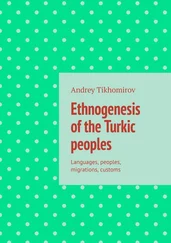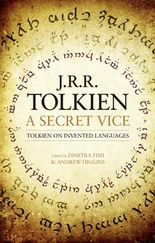Louise didn’t pass the test. “Oh, well,” she said with a shrug and a smile. “I will try again next year.” And I was there the next year, at a highway hotel outside of Philadelphia, when she did pass the test. I bought her a drink, and we toasted to perseverance.
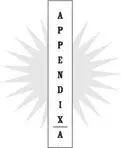
What follows is a list of five hundred invented languages in chronological order. Why five hundred? Why not all of them? For one thing, no one knows how many there are. Any claim to completeness in a list would surely be undone by the discovery of yet another self-published book or pamphlet in a library storage room somewhere. Another problem is determining what should count as an invented language. Should a few lines of made-up gibberish in a novel earn a place on the list? What about a sketch of an idea with none of the detail filled in?
When I started assembling this list, I had the ambitious intention to be as complete as possible, to include every project that anyone anywhere had any evidence for, but this soon proved impractical. The story I was trying to tell got lost in a swamp of data. I wanted the list to be big enough to impress, to make you exclaim, “I had no idea there were so many!” But I also wanted it to be manageable enough to serve as a sort of mini-history, where just by looking at the dates and the names of the languages, you could spot some general trends and get a sense of the connections between the ideas and the times.
I culled my list from the more than nine hundred languages covered in Aleksandr Dulichenko’s Mezhdunarodnye vspomogatel’nye iazyki (International Auxiliary Languages, 1990). This massive piece of research includes all of the projects covered by previous overviews, such as Histoire de la langue universelle by Louis Couturat and Leopold Leau (1903), Bibliografio de internacia lingvo by Petr Stojan (1929), Historio de la mondolingvo by Ernest Drezen (1931), and Précis d’interlinguistique générale et speciale by Marcel Monnerot-Dumaine (1960), in addition to others mentioned in various sources. Dulichenko’s work is about as complete as you can get. It’s in Russian, and it’s not easy to get ahold of, but you can find it at some major universities and the Library of Congress.
In deciding what to include in my own list, I didn’t set any strict criteria. I just used my judgment and aimed for a list that would tell the story without distorting the facts. I left out a lot of works titled Pasigraphie , but put in enough to show that pasigraphies (universal writing systems) were big in the early nineteenth century, and still popped up occasionally after that. Although many languages from the early twentieth century got left out on account of having boring names (how many variations on “Lingua International” do you need to get the picture?), there are enough in there, proportionally, to highlight the explosion in the number of projects during this era. Languages with strange or interesting names got in, as did those whose authors exposed their desire for personal glory by naming their projects after themselves (see, for example, Isly’s Linguum Islianum of 1901, Ostaszewski’s Ost of 1926, and Anderson’s Ande of 1960). I left out quite a few projects that were just reforms or improvements of other projects, but put in enough to show how widespread the “reform and improve” disease is among language inventors.
I included any work that I myself had seen in a library but had not seen in anyone else’s list of invented languages (for example, A Universal Language by James Ruggles [1829] and Walter Cuthbertson’s Standard World Language for International Use [1919]). I avoided works that involved too much uncertainty about dating or authorship—unless there was something intriguing about them (who was this Prince Immanuel of Jerusalem, the creator of Universal [1914?]?). Languages with weird names got in, as did languages from underrepresented countries such as Ghana (El-Afrihili, 1970), India (Koine Romai, 1973; Om, 1925; Sputnik, 1964), Iran (City-Language, 1959), Nigeria (Guosa, 1981), and Vietnam (Frater, 1957).
If an inventor had multiple languages, I sometimes admitted only one—Weferling’s Intal (1956) made it in, but not his Intal II (1964) or III (1968)—but for especially prolific inventors I might include the whole bunch. (Hats off to Petr Stojan, who gave us, over the years from 1911 to 1926, Spiranta, Aryana, Ariana, Amiana, Liana, Unita, Espo, and Eo.)
Dulichenko’s list goes only as far as 1973. Past 1973, I simply included languages I had heard of or seen myself in libraries. The criteria for dating a language require some explanation. Generally, the year given for a project represents the initial date of publication in an article or a book. I date Tolkien’s languages, for example, as 1955, even though he had already been working on them for forty years by that point, because that is when he first published information about them (in the appendix to the third book of The Lord of the Rings ).
The dating of languages in the Internet age gets even more complicated. The years given for most of the languages I list from 1990 on represent (approximately) the first posting about the language on the Web, in a newsgroup, or on a site dedicated to the language. The “conlangs” or “artlangs” I have listed here amount to a vanishingly tiny portion of the number that are out there. Sites like Langmaker.com list hundreds of them. On forums like the “zompist” bulletin board (www.spinnoff.com/zbb ), new languages are born every day. I have listed only the projects that I mention in the text, along with a few other especially noteworthy or well-developed ones—languages that most of the highly regarded conlangers will have heard of.
Samples of various languages are given in appendix B. You can sort this list by language name or author, and see further information about some of the languages and their inventors at inthelandofinventedlanguages.com .
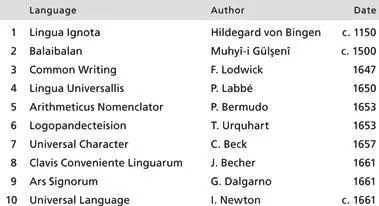
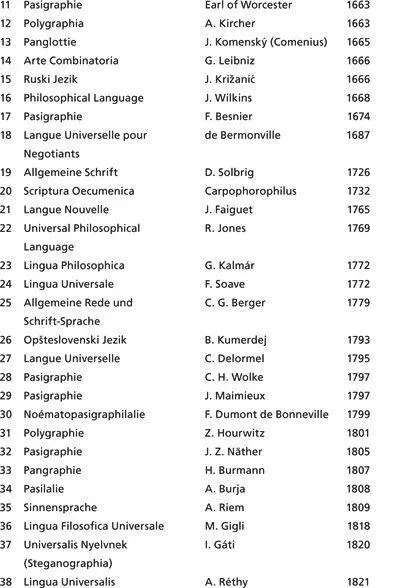
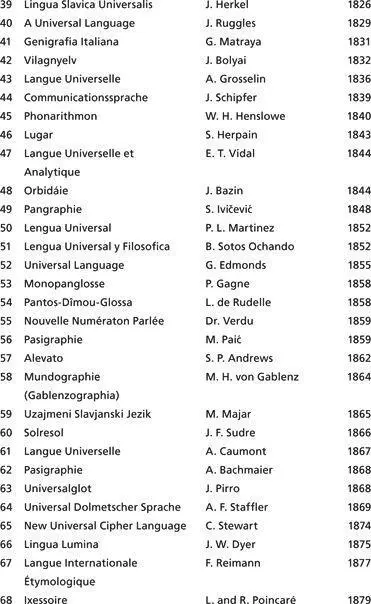
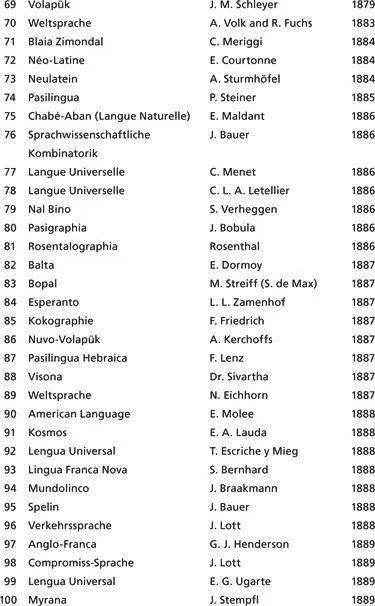
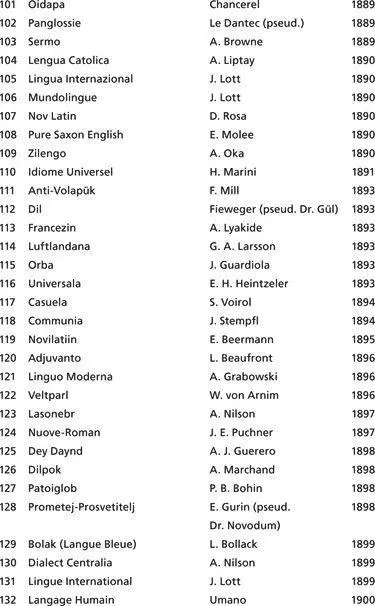
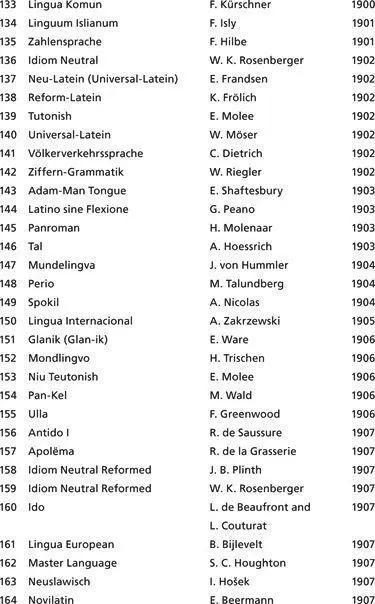
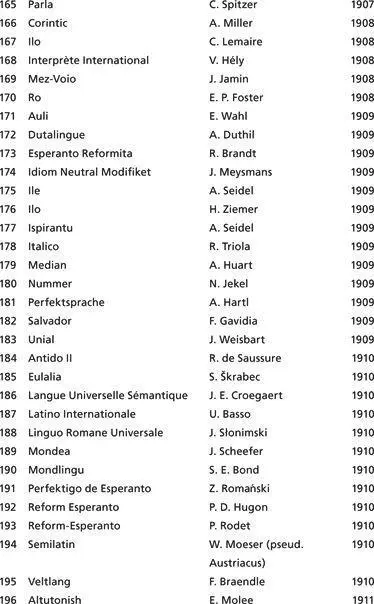
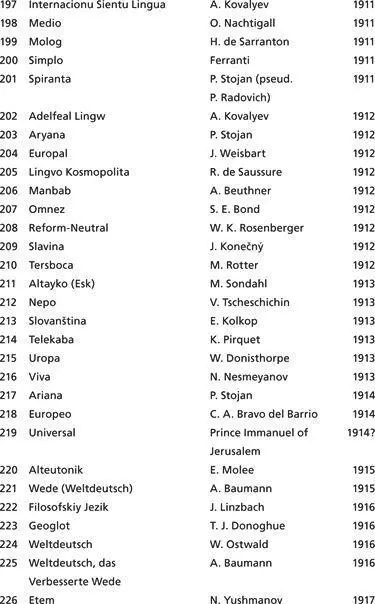
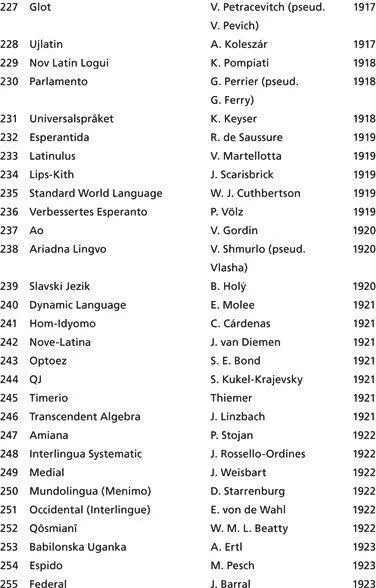
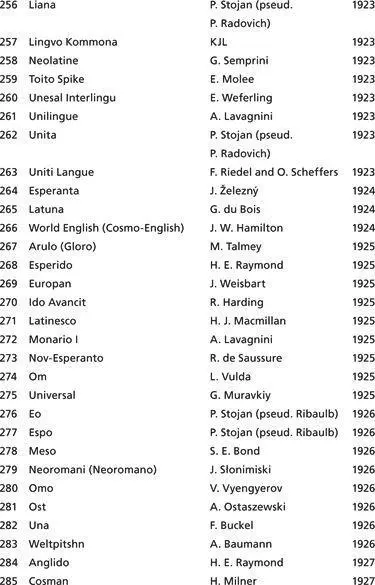
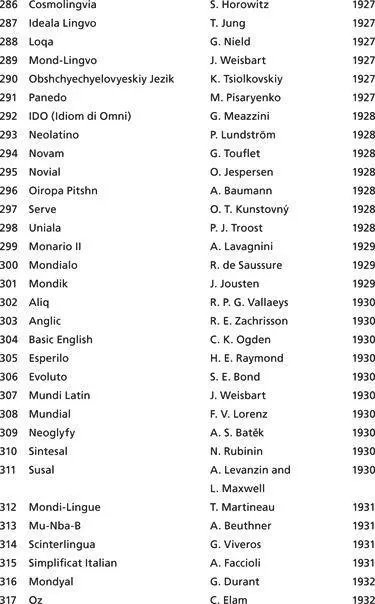
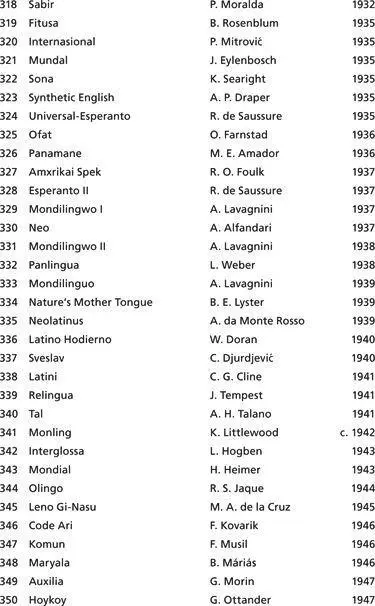
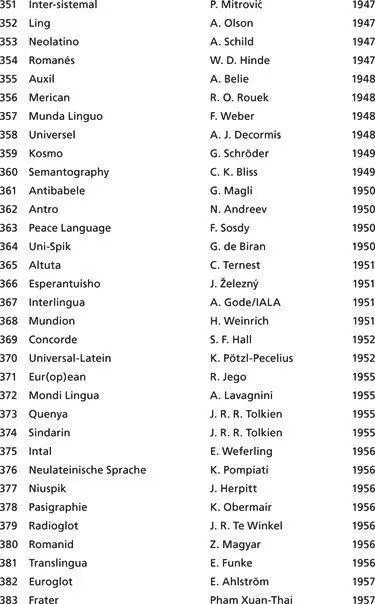
Читать дальше

















